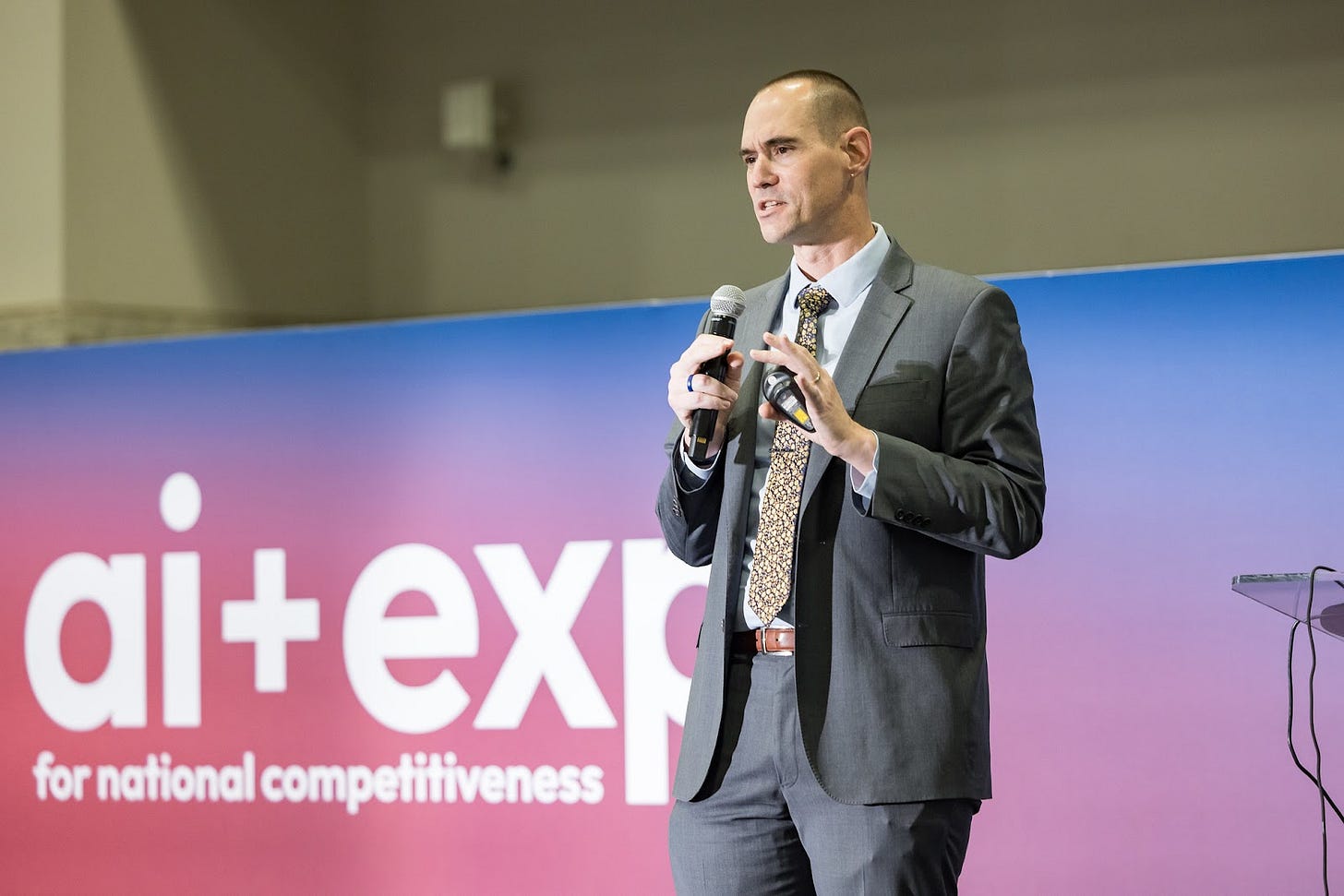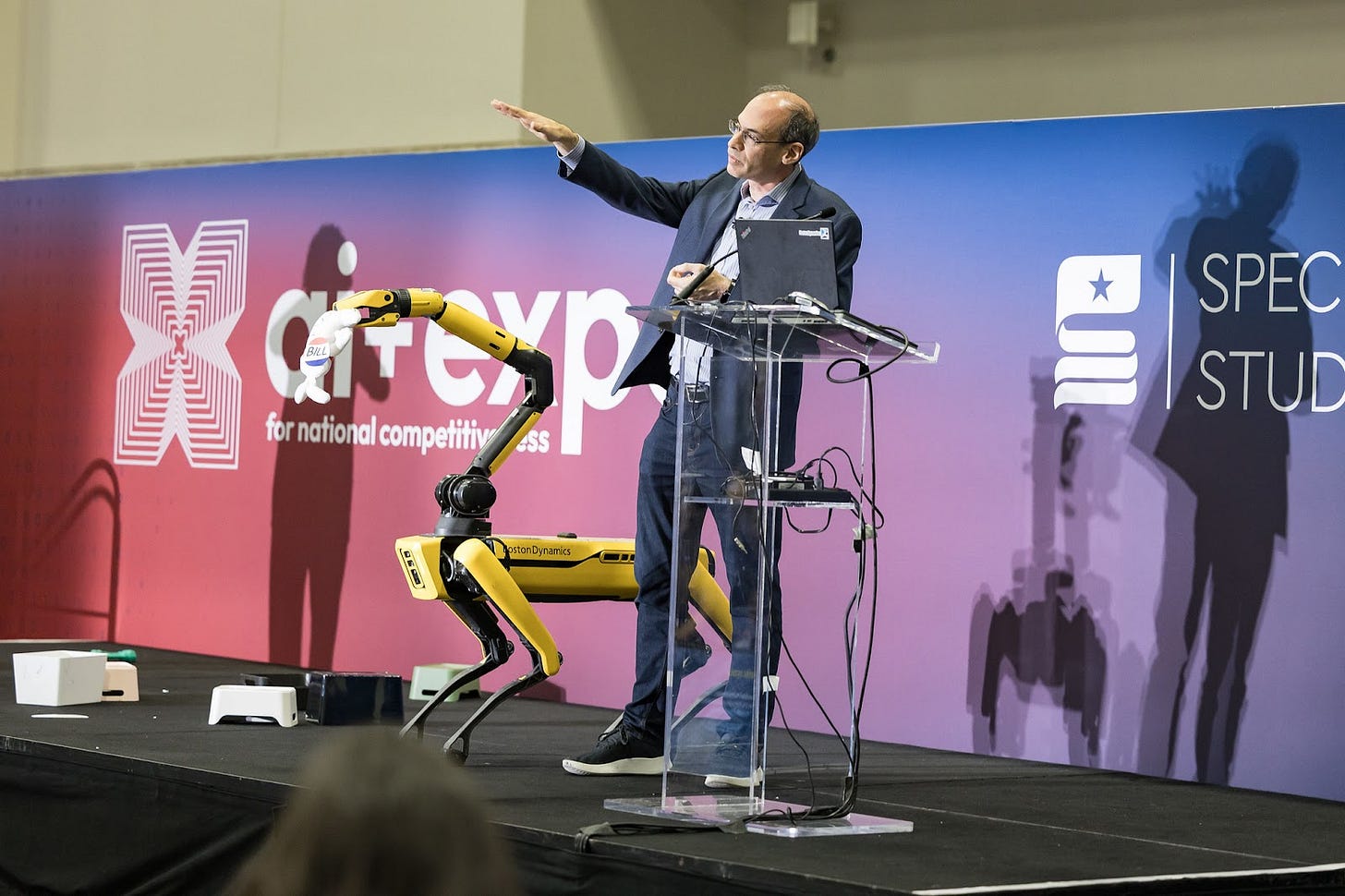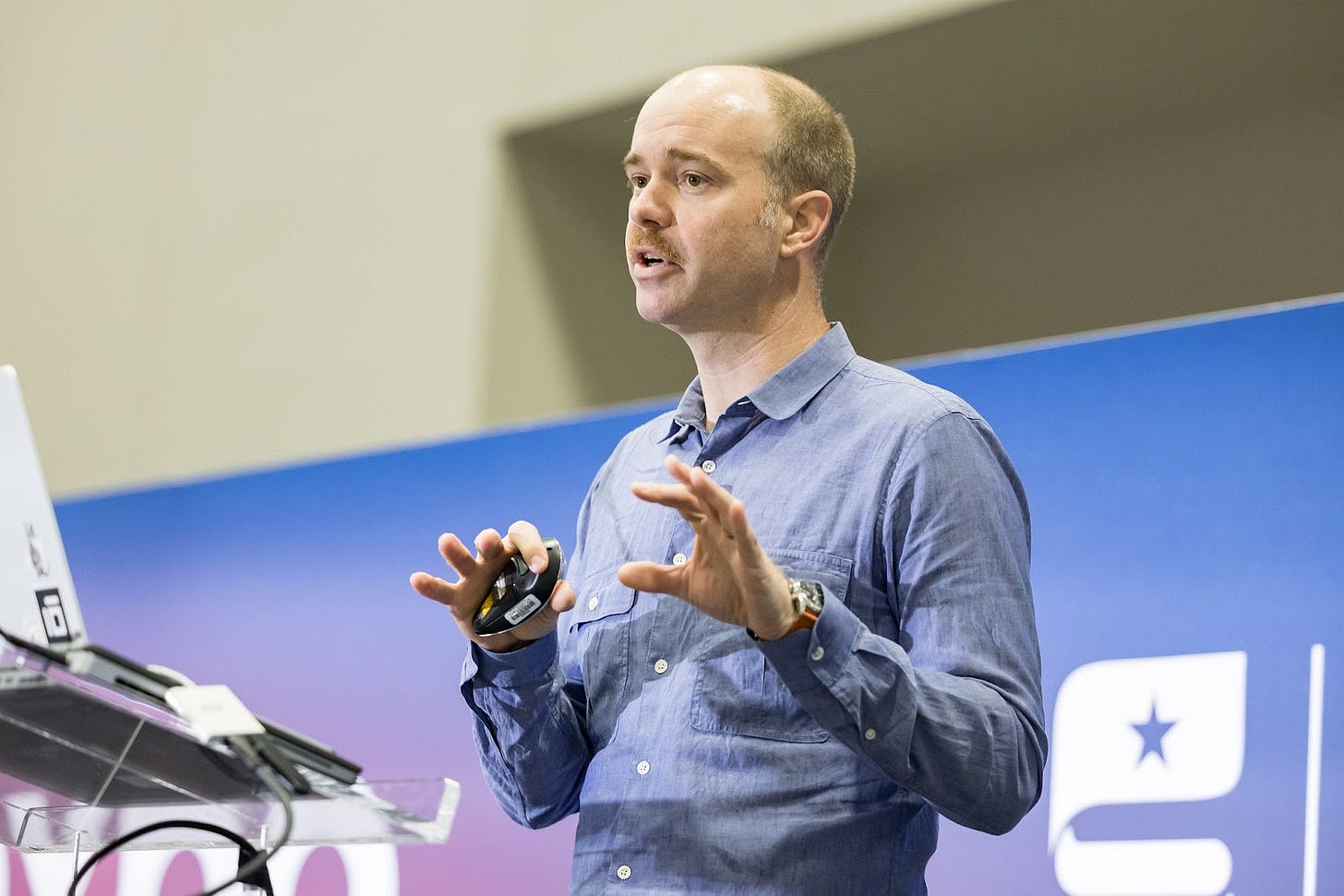Hello, I’m Ylli Bajraktari, President of the Special Competitive Studies Project. Welcome to our latest newsletter, where we bring you a focused recap of the insightful sessions and groundbreaking discussions from the Demo Stage at the recent AI+ Expo! This stage served as a vital platform for exploring how organizations across industry, academia, and government are harnessing AI and other emerging technologies to drive innovation and bolster national competitiveness.
Join us at the AI+ Science Summit!
SCSP’s AI+ Summit Series is a set of high-level events dedicated to enabling rapid advancements in artificial intelligence (AI) as it transforms our country and becomes a keystone of our national security. The AI+ Science Summit, the fifth in this series, will take place next Wednesday, in Washington, D.C. Check out the newly released agenda and tuned for additional announcements coming soon!
Key Highlights from the Demo Stage
The Demo Stage hosted approximately 35 sessions throughout the Expo, covering a diverse range of topics, from AI and defense to energy, robotics, digital currency, AR/VR/XR, and biotechnology. Here is a snapshot of some of the standout moments:
Session 1: Boston Dynamics, Spot Robot
Summary: Brendan Schulman, VP of Policy and Government Affairs at Boston Dynamics, demonstrated the Spot Robot—a four-legged, mobile platform engineered for real-world agility, autonomy, and adaptability in unpredictable environments. The demo showcased Spot performing a range of dynamic tasks, including stair climbing, obstacle avoidance, and precise maneuvering in tight spaces. Schulman emphasized Spot’s role in industrial inspection, public safety, and disaster response—areas where AI-powered robotics can reduce human risk, increase operational efficiency, and gather data in real time. He positioned Spot as a case study in how advanced robotics are transitioning from research labs to mission-critical deployments, and called for forward-looking public policy that embraces these capabilities, supports adoption, and reinforces U.S. leadership in the global robotics and AI race.
Speakers/Participants: Brendan Schulman, VP of Policy and Government Affairs, Boston Dynamics
Session 2: Lawrence Livermore National Laboratory (LLNL), U.S. Department of Energy, A National Security AI Platform: Driving Accelerated Science With AI

Summary: Dr. Brian Spears, Director of the AI Innovation Incubator (AI3) at LLNL, demonstrated how AI is transforming science and national security. Dr. Spears introduced a national security AI platform that integrates advanced reasoning models with U.S. strengths in high-performance computing, large-scale science, and precision manufacturing to accelerate discovery and execution. Using cognitive simulation—AI models embedded in scientific workflows—LLNL is addressing core national security challenges such as strategic deterrence, biodefense, and advanced manufacturing. The demo featured systems like the Cerebras CS‑1, capable of millions of inferences per second, to illustrate how AI can dramatically speed experimentation and design. Spears emphasized the need for public–private partnerships to scale this platform and maintain U.S. strategic advantage.
Speakers/Participants: Dr. Brian Spears, Director of the AI Innovation Incubator (AI3), Lawrence Livermore National Laboratory.
Session 3: Chan Zuckerberg Initiative (CZI), Advancing Biological Discovery With AI: Presenting The One Billion Cells Project
Summary: Jonah Cool, Senior Science Program Officer for Cell Science at the Chan Zuckerberg Initiative, introduced the One Billion Cells Project—a landmark, open-data effort in collaboration with partners like 10x Genomics, Ultima Genomics, Psomagen, and Scale Biosciences. The project aims to train AI models for predicting cellular behavior and disease drivers, accelerating discovery by making this data freely available worldwide. It does so through an AI-ready dataset of one billion single-cell profiles using high‑throughput sequencers (Chromium GEM‑X and UG 100) and a GPU cluster of over 1,000 Nvidia H100s
Speakers/Participants: Jonah Cool, VP of Scientific Strategy & Partnerships, Chan Zuckerberg Initiative (CZI).
Further Insights from the Demo Stage
Beyond these highlighted sessions, the Demo Stage delved into many other critical areas, fostering dialogue and collaboration on topics such as:
AI-enabled software for defense and national security applications
Autonomous systems and AI applications across the manufacturing sector
Energy optimization, AR/VR/XR-enabled medical technology, and ocean exploration
We encourage you to explore the full list of sessions from the Demo Stage on our YouTube channel for more in-depth content.
Looking Ahead
The discussions on the Demo Stage underscored the transformative impact of AI across both the private and public sectors. Each demo offered a window into how AI is enabling capabilities that were previously out of reach. The presenters showcased cutting-edge capabilities, offering a clear view of where AI is headed. We’re excited to see how these advances translate into real-world impact, inform policy, and bolster U.S. leadership.
Stay tuned for more focused recaps from other stages of the AI+ Expo!






